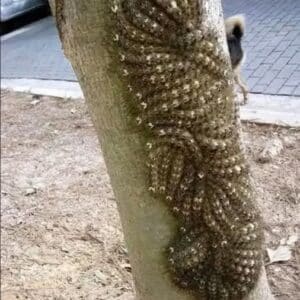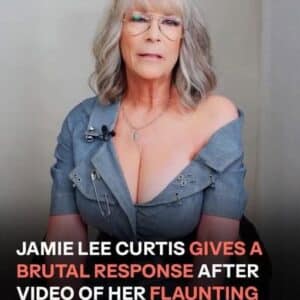My Stepmother Sold My Late Mother’s Piano — She Didn’t Know What It Would Cost Her
When my stepmother sold the only item my mother left behind, I thought nothing could hurt worse. But what she didn’t realize was that her thoughtless decision would end up costing her far more than an old piano.
Music, Memory, and Loss
I was just 14 when my mother passed away from cancer—slow, cruel, and unforgiving. Even in her final days, when standing was a struggle, she still played her piano every Sunday morning.
It was an antique Steinway upright, worn but majestic. A dark mahogany piece that filled the room with Mozart, jazz lullabies, and quiet improvisations as morning light spilled through the curtains. It wasn’t just an instrument. It was her soul, her breath, her legacy.
During her funeral, when people asked if I wanted her jewelry or scarves, I only said:
“The piano. I just want the piano.”
Dad promised it was mine. He even updated his will to make it official. Keeping it in the living room felt like a silent vow that time couldn’t erase her presence entirely.
Enter Valerie
Two years later, my father met Valerie—cheerful, polished, peppermint-scented, and Pinterest-perfect. She brought along her daughter Brooke, who was my age but twice as smug. Her first words to me?
“You look like a homeless Taylor Swift.”
Nice.
I tried to stay quiet, stay out of the way, and just survive high school. But slowly, our home became unfamiliar. Valerie replaced furniture, tossed “junk,” and filled the house with cinnamon candles. My mother’s shawls disappeared. Photos of us baking together vanished—replaced by framed shots of Valerie and my dad posing in Aspen or Cancun.
But she never touched the piano. I thought maybe—just maybe—she understood its significance.
Turns out, she was just waiting for the right moment.
The Shock
At 18, I went off to college. Coming back for spring break, I craved something familiar—some anchor to the home I barely recognized anymore. But when I stepped into the living room, the piano was gone.
Not moved. Not covered. Gone. Just a pale imprint on the carpet where it once stood.
“Where’s the piano?” I asked, heart pounding.
From the kitchen, Valerie’s voice floated in: “That old thing? I had it removed. It was falling apart.”
She strolled in, smoothie in hand, and waved dismissively. “You never played it, sweetheart. It was just gathering dust.”
I stared at her, stunned. “That was Mom’s. That was mine.”
“Oh, don’t be dramatic,” she scoffed. “It wasn’t even really yours.”
I barely made it up the stairs before I broke down. Shaking, I texted my father.
“Where is Mom’s piano? Valerie said she sold it.”
No response. I spent the night listening to her giggle downstairs on the phone with the buyer.
“They actually wanted it in Ohio,” she laughed. “Can you believe people still keep those things?”
The Fallout
Dad returned from a business trip two days later. I watched from the landing as he rolled his suitcase in—and froze in the doorway, staring at the empty spot.
Valerie appeared, all cheer and yoga pants. “Oh hey, babe! You’re early!”
“Where’s the piano?” he asked without turning.
Feigning ignorance, she replied, “What? That old thing? I sold it. Nora never played it, and it was hideous.”
He turned. Slowly. Quietly. “I hid your birthday present in there,” he said. “A necklace. A $3,000 Cartier. Taped beneath the bottom panel.”
Her smoothie slipped from her hands and splattered across the hardwood.
“You’re kidding.”
“I have the receipt.”
She scrambled for her phone, calling the buyer in a panic. I listened, holding my breath.
“Hi! I sold you a Steinway upright last week. I need it back. Urgently. There was something inside… No, I didn’t know! Hello? Hello?”
She turned back to Dad, wide-eyed. “Why didn’t you tell me?”
His voice, cold as ice: “Because you were never supposed to touch that piano.”
“That’s not fair!” she cried.
“You didn’t ask,” he snapped. “You just take.”
The Goodbye
The house echoed with shouting that night—her sharp voice, his calm fury. In the morning, half her closet was empty. A note sat on the kitchen counter:
“I need space. Don’t call me.”
Dad folded it and placed it in the drawer beside the takeout menus.
One week later, he sat me down and said quietly, “I’m filing for divorce.”
He looked weary. Ashamed. But lighter somehow. He slid a folder toward me. Inside: pictures of the piano, a copy of the will, the appraiser’s report, and his search for the buyer.
“I tried,” he said. “But it’s probably gone forever.”
We sat in silence, both mourning something more than wood and keys. But from that point on, things changed.
A New Beginning
Dad started making pancakes again on Sunday mornings—syrupy, too sweet, just like Mom used to. He asked about school. He listened. We were mending something we hadn’t realized was broken for years.
One Saturday, he took me to the garage. Under a blue tarp sat an old upright piano—scratched, a bit unsteady, but beautiful.
“It’s not hers,” he said, “but now it’s yours.”
I ran my fingers along the keys—ivory, hand-carved, and warm. I sat. I played a few shy notes. Then a chord. Then another.
The music came back. Like it had been waiting.
The Lesson
Some things, once lost, can never return. My mother’s piano was one of them. But sometimes, it’s not about reclaiming the past—it’s about building something new from what remains.
And sometimes, letting go of what breaks you opens the door for what heals you.





